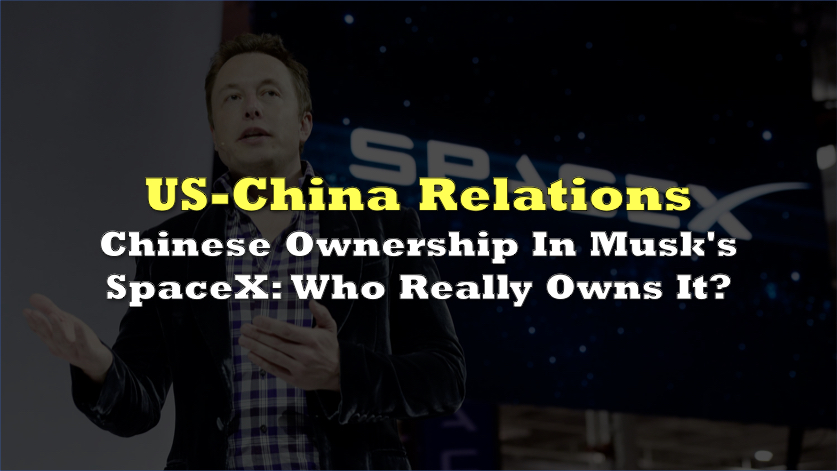As the National Labor Relations Board (NLRB) faces escalating scrutiny from corporate giants SpaceX and Amazon (NASDAQ: AMZN), the stakes for American labor rights have rarely been higher. The two companies are leading a legal challenge against the NLRB, alleging that its structure and operations violate constitutional principles.
On Monday, the Fifth Circuit Court of Appeals will hear arguments in these cases, which could have profound implications for the future of collective bargaining and workplace organizing. This legal battle comes against a backdrop of heightened labor activism and unprecedented support for unions from the Biden administration, juxtaposed with the looming return of U.S. President-elect Donald Trump, who has signaled a pro-business approach.
The NLRB, established in 1935 as part of the New Deal, was created to oversee labor-management relations and safeguard workers’ rights to organize. In recent years, the Biden administration has strengthened the agency’s role, with General Counsel Jennifer Abruzzo aggressively pursuing cases against employers accused of undermining workers’ rights.
However, this assertive approach has drawn fierce backlash from corporate America. SpaceX and Amazon claim the NLRB wields unchecked authority, a sentiment echoed by other companies in over two dozen similar lawsuits. Their arguments center on what they perceive as violations of the constitutional separation of powers.
Specifically, SpaceX’s attorneys argue that the NLRB “acts as prosecutor, judge, and jury” in labor disputes, leaving companies without adequate judicial oversight. Amazon has similarly taken issue with the agency’s decision-making structure, particularly its administrative law judges and the president’s limited power to remove board members.
The legal challenges follow NLRB investigations that found SpaceX and Amazon had violated federal labor laws.
- Amazon: The tech and retail giant refused to negotiate with the Amazon Labor Union (ALU), which workers at its Staten Island, New York, warehouse voted to form in 2022. This refusal prompted an NLRB complaint accusing Amazon of obstructing collective bargaining efforts.
- SpaceX: The aerospace company faced allegations of retaliating against employees who criticized CEO Elon Musk. Eight workers claimed they were fired after voicing concerns over Musk’s management and workplace culture.
In response, the companies argue the NLRB’s adjudication process denied them the right to a jury trial, a claim that could resonate with judges sympathetic to corporate grievances about regulatory overreach.
Complicating the legal landscape is Musk’s prominent role in the incoming Trump administration. As co-chair of a new commission on reducing government bureaucracy, the Department of Government Efficiency, Musk is poised to influence policies that could affect the NLRB’s future.
While the exact focus of the commission remains unclear, labor advocates fear the agency could be targeted for restructuring or defunding, particularly given Trump’s past efforts to weaken labor protections.
Abruzzo has been vocal in defending the NLRB’s mission, warning of “chaos” if the agency’s ability to enforce labor laws is undermined. Speaking at the National Press Club in October, she asserted, “Our work ensures that workers have a fair chance to advocate for better wages, safer conditions, and respect in their workplaces.”
With Trump preparing to take office, a shift in labor law enforcement appears imminent. Abruzzo, a Biden appointee who has championed workers’ rights, is expected to be swiftly replaced by a general counsel more favorable to business interests.
During Trump’s previous term, his appointee Peter Robb prioritized employer-friendly policies, including rolling back rules that expanded organizing rights. A similar approach is likely under a second Trump administration, potentially stalling or reversing many of Abruzzo’s initiatives.
One significant change under Abruzzo was the NLRB’s decision to ban “captive audience” meetings, where employers compel workers to attend anti-union presentations. Such rulings have been hailed by labor advocates but could face repeal under new leadership.
Amazon and SpaceX’s lawsuits reflect a broader trend of corporations challenging regulatory oversight in pursuit of greater autonomy. For Amazon, whose sprawling workforce has become a focal point for unionization efforts, the stakes extend with potential ripple effects across its global operations.
SpaceX, meanwhile, is navigating its own unique challenges as a high-profile company led by the outspoken and often controversial Musk. Critics argue that its treatment of employees sets a dangerous precedent for tech and aerospace industries, where workplace cultures are often shaped by powerful personalities.
Information for this story was found via NPR and the sources and companies mentioned. The author has no securities or affiliations related to the organizations discussed. Not a recommendation to buy or sell. Always do additional research and consult a professional before purchasing a security. The author holds no licenses.









